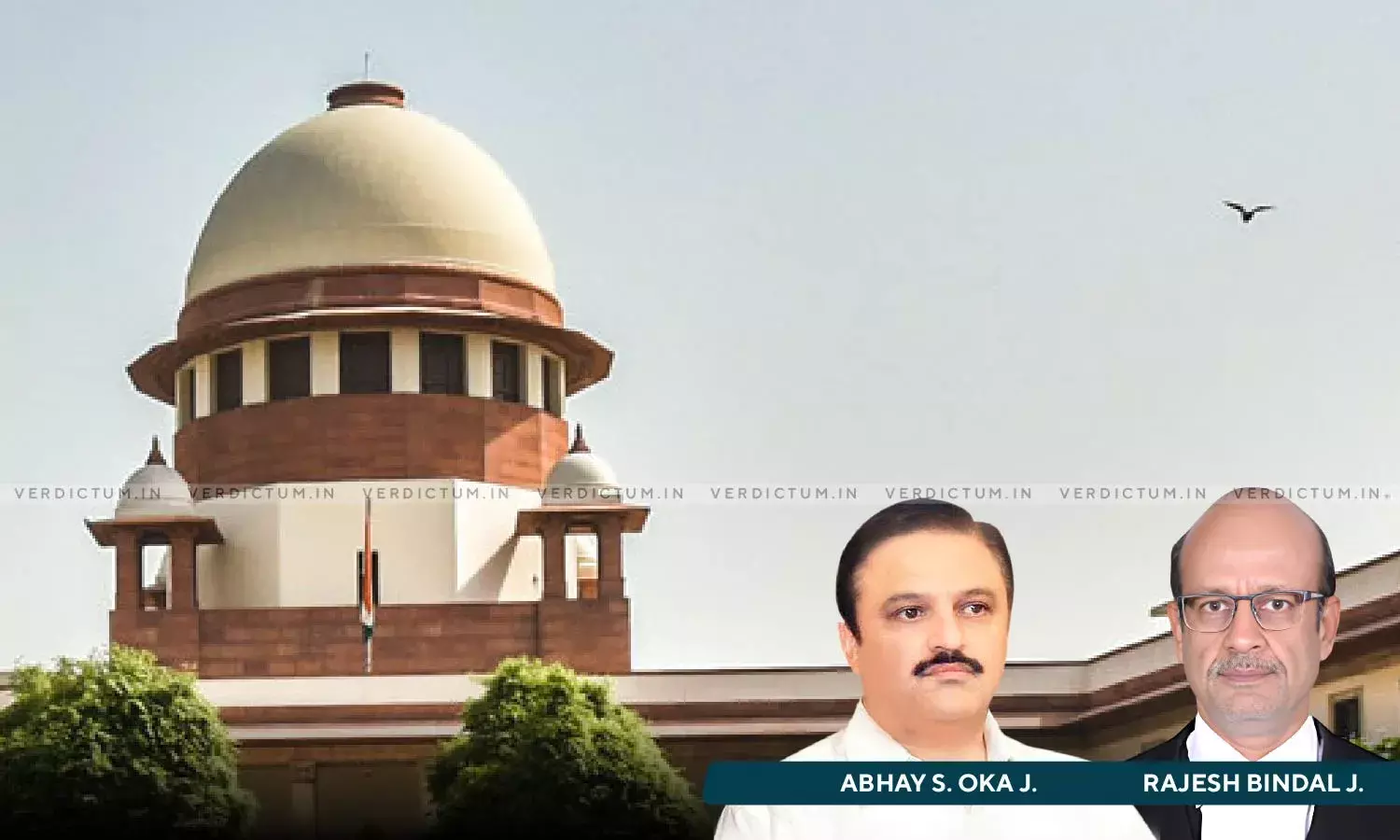SC Grants Probation U/s. 360 CrPC To Convict In 2007 Gambling Case As He Never Indulged In Similar Crime Subsequently

The Supreme Court has granted probation to an accused under Section 360 of the Criminal Procedure Code, 1973 (Cr.PC.) in 2007 gambling case saying that he never indulged in any case of gambling.
The two-Judge Bench comprising Justice Abhay S. Oka and Justice Rajesh Bindal held, “The incident pertains to the year 2007, when the appellant was about 31 years of age and has been sentenced to undergo imprisonment for a period of one month. As per the information furnished by the learned counsel for the State, the appellant has never indulged in any case of gambling, though there were some cases under Section 107 CrPC. In our opinion, the appellant deserves to be granted the benefit of probation.”
The Bench was dealing with a case wherein the appellant was convicted under Section 80 of the Karnataka Police Act, 1963.
Advocate Abdul Azeem Kalebudde appeared for the accused/appellant while Advocate V.N. Raghupathy appeared for the State/respondent.
In this case, an FIR was registered against 24 accused persons including the appellant under Sections 79 and 80 of the said 1963 Act as they were found to be indulging in gambling and the Trial Court convicted and sentenced them to undergo imprisonment for a period of one year each under both the provisions along with a fine of Rs. 600/-. At that stage, the accused filed affidavits before the Trial Court undertaking that they will not commit such offence in the future and taking note of that, the Court sentenced them to imprisonment till the rising of the Court.
The State preferred an appeal against five accused after being aggrieved by the order of the Trial Court and the Additional Sessions Judge allowed the same against the appellant, sentenced him to undergo imprisonment for a period of one month, and imposed a fine of Rs. 200/- under Section 80 of said Act. He, however, was acquitted of the offence under Section 79 and no order was passed against other accused as they could not be served as a result of which the appellant moved to the High Court but the same was dismissed.
The Supreme Court in the above regard noted, “The argument raised by the learned counsel for the Appellant is that the appellant is not a habitual offender. He has not indulged in any such activity after the involvement in the case in hand. There are no other cases pending against him. He may be given the benefit of probation. … On the other hand, learned counsel for the Respondent State submitted that the appellant was involved in a serious offence of gambling at public place and was involved in cases pertaining to Section 107 CrPC. Subsequently, he does not deserve the benefit of probation.”
The Court, therefore, directed that the appellant be released on probation under Section 360 Cr.P.C. on entering into bond and two sureties each to ensure that he will maintain peace and good behaviour for the duration of his sentence, failing which he can be called upon to serve the sentence.
Accordingly, the Apex Court disposed of the appeal.
Cause Title- Soori @ T.V. Suresh v. The State of Karnataka


